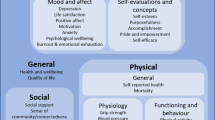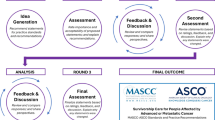Abstract
Consent forms are an important educational tool that helps cancer patients decide on whether or not to enroll on a clinical trial, but wordiness potentially detracts from their educational value. This single-institution study examined word counts of consent forms for all phase I, II, and III solid tumor clinical trials between 2004 and 2010. Consent forms were categorized by trial funding source: (1) pharmaceutical company; (2) National Clinical Trials Network (NCTN); (3) R01- or other non-government grants; and (4) mixed (funding from multiple sources). Three hundred fifteen consent forms were studied; these included 106 (34%) pharmaceutical company; 145 (46%) NCTN; 44 (14%) R01 type; and 20 (6%) mixed. The overall median word count was 5129 words per consent form (interquartile range (IQR) range, 4226 to 6695). The median word counts per consent form (IQR) were 5648 (4814, 6803), 5243 (4139, 6932), 4365 (3806, 5124), and 4319 (3862, 5944), respectively, based on the above funding sources, showing that pharmaceutical company trial consent forms had the highest median word count. Of note, phase of trial was associated with consent form length (phase III were wordier), and consent forms manifested a consistent increase in wordiness over time. These observations underscore a timely need to find ways to limit the verbosity of consent forms, particularly in those from pharmaceutical company trials.




Similar content being viewed by others

References
Hochhauser M. Consent forms in context: how long is long? In: SOCRA. Last accessed November 23, 2019
Barron D. The new era of informed consent in: eye for pharma. Last accessed January 20, 2020
FDA Drug Approvals Jump In 2004 In: Relias Media. Last accessed December 13, 2019
de le Mora-Molina H, Barajas-Ochoa A, Sandoval-Garcia L, Navarrete-Lorenzon M, Castaneda-Barragan EA, Castillo-Ortiz JD, Aceves-Avila FJ, Yanez J, Bustamante-Montes LP, Ramos-Remus C (2018) Trends of informed consent forms for industry-sponsored clinical trials in rheumatology over a 17-year period: readability and assessment of patients’ health literacy and perceptions. Semin Arthritis Rheum 48:547–552
Douglas CE, Michael FA (1991) On distribution-free multiple comparisons in the one-way analysis of variance. Communications in Statistics – Theory and Methods 20:127–139
Jonckheere AR (1954) A distribution-free k-sample test against ordered alternatives. Biometrika 41:133–145
Mann HB, Whitney DR (1947) On a test of whether one of two random variables is stochastically larger than the other. Ann Math Stat 18:50–60
Schumacher A, Sikov WM, Quesenberry M, Safran H, Khurshid H, Mitchell KM, Olszewski AJ (2017) Informed consent in oncology clinical trials: a Brown University Oncology Research Group prospective cross-sectional pilot study. PLoS One 12:e0172957
Mcspadden K (2015) You now have a shorter attention span than a goldfish in: TIME. Accessed 13 December 2019
Hlubocky FJ, Sachs GA, Larson ER, Nimeiri HS, Cella D, Wroblewski KE, Ratain MJ, Peppercorn JM, Daugherty CK (2018) Do patients with advanced cancer have the ability to make informed decisions for participation in phase I clinical trials? J Clin Oncol 36:2483–2491
Schroen TA, Petronic RG, Wang H (2010) Preliminary evaluation of factors associated with premature trial closure and feasibility of accrual benchmarks in phase 3 oncology trials. Clinical Trials 7:312–321
Hlubocky FJ, Kass NE, Roter D, Larson S, Wroblewski KE, Sugarman J, Daugherty CK (2018) Investigator disclosure and advanced cancer patient understanding of informed consent and prognosis in phase I clinical trials. J Oncol Pract 14:e357–e367
Garrett SB, Koenig CJ, Trupin L, Hlubocky FJ, Daugherty CK, Reinert A, Munster P, Dohan D (2017) What advanced cancer patients with limited treatment options know about clinical research: a qualitative study. Support Care Cancer 25:3235–3242
Funding
This work was supported in part by K12CA090628 and by P30CA15083.
Author information
Authors and Affiliations
Corresponding author
Additional information
Publisher’s Note
Springer Nature remains neutral with regard to jurisdictional claims in published maps and institutional affiliations.
Rights and permissions
About this article
Cite this article
Duong, Q., Mandrekar, S.J., Winham, S.J. et al. Understanding Verbosity: Funding Source and the Length of Consent Forms for Cancer Clinical Trials. J Canc Educ 36, 1248–1252 (2021). https://doi.org/10.1007/s13187-020-01757-7
Published:
Issue Date:
DOI: https://doi.org/10.1007/s13187-020-01757-7



